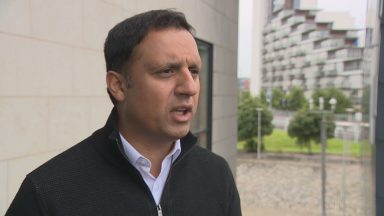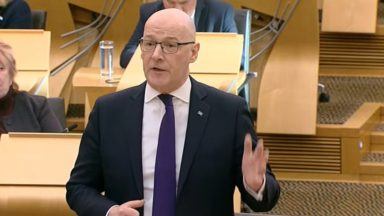Young people’s earning potential could be reduced for their entire working lives if schools do not reopen, a report has warned.
Around a quarter of the entire UK workforce could have lower skills by the mid-2030s for half a century onwards, the paper from the Royal Society predicts.
This could reduce pupils’ earning potential by around 3% a year and lower the economic growth rate if action is not taken, it said.
Schools closed their doors to the majority of pupils in March due to coronavirus, with pupils expected to return in Scotland full-time in August and September in England and Wales.
The report, which includes work from Edinburgh University academics, says governments must prioritise reopening schools and try to keep them open in the months to come.
It calculates that 13 cohorts of students have been affected by the Covid-19 lockdown – and for the 50 years after the mid-2030s, around one in four British workers could have lower skills due to school closures.
Apart from the longer-term economic consequences of school closures, the immediate negative impact on children’s mental and physical health and safety will be “considerable”, it warns.
The paper, by the Royal Society’s data evaluation and learning for viral epidemics (Delve) group, concludes that the risk of restarting schools is not as high as many other activities.
However, it also recognises that the evidence on the infection risk from reopening schools is limited.
Education secretary John Swinney announced on Thursday that because of this lack of data, high school pupils will likely be asked to socially distance should they return full-time on August 11.
Primary school pupils will not have to under the plans.
The Scottish Government is to take a final decision on reopening schools on July 29 and issue guidance to the education sector the following day.
Swinney also said the government would deal with any localised cluster of cases in the same way as it is handling the outbreak at a Sitel call centre in Lanarkshire – ideally through Scotland’s ‘test and protect scheme’ and other measures rather than local lockdowns.
The Delve report concedes that if infection rates rise in certain areas of the UK, schools may have to close – but these decisions should be made on a school-by-school or local area basis, it adds.
The report calls for the virus to be suppressed in the wider community to reduce the risk of transmission in schools once they are at full capacity and minimise disruptions to learning.
If local outbreaks occur, other facilities where the risk of transmission is high, such as pubs, gyms or non-essential shops, should be closed before considering school closures.
Simon Burgess, professor of economics at the University of Bristol and a lead author on the report, said: “We know how damaging it is for children to miss out on school.
“The amount of school already missed due to the pandemic could impact on their earning potential by around 3% a year throughout their lives and impact on productivity in the UK for decades.
“While it is still early days, there has been little evidence of surges in infection rates in countries that have opened up their schools, including countries that have fully reopened.”
Evidence suggests that if a student misses a third of a school year, and each year brings roughly a 10% return, their earnings potential is likely to be lower by 3% a year, the report says.
Students with lower attainment are more likely to have lost out from school closures and are more likely to be low earners and they will face a “significantly higher risk of poverty”, it adds.
Another lead author, Anna Vignoles from the University of Cambridge, said: “Shutting down schools has impacted all children but the worst effects will be felt by those from lower socio-economic groups and with other vulnerabilities, such as a pre-existing mental health condition.
“Children from low-income households in particular are more likely to lack the resources (space, equipment, home support) to engage fully with remote schooling.
“Those with pre-existing conditions are more likely to experience a worsening of their mental health. This has to be taken into account in how we come out of this pandemic.”
Follow STV News on WhatsApp
Scan the QR code on your mobile device for all the latest news from around the country






























